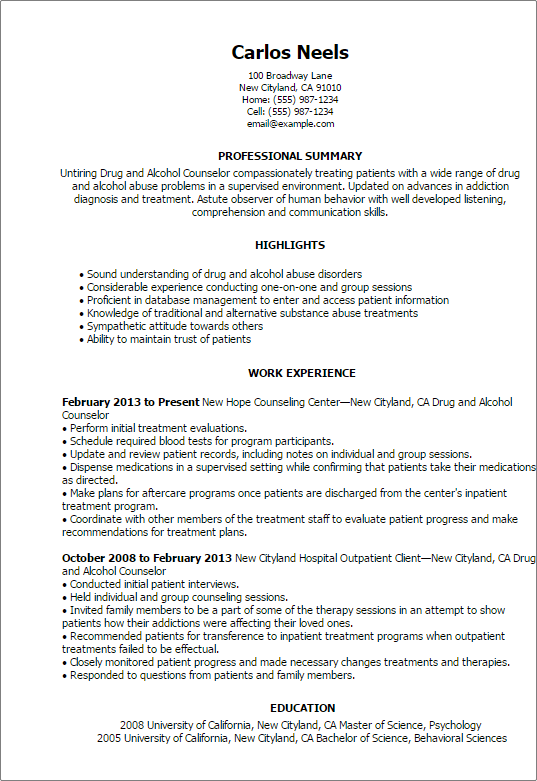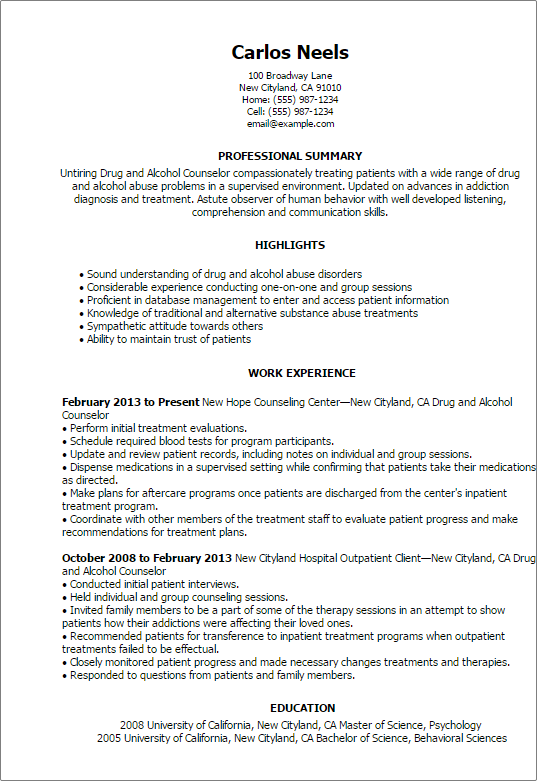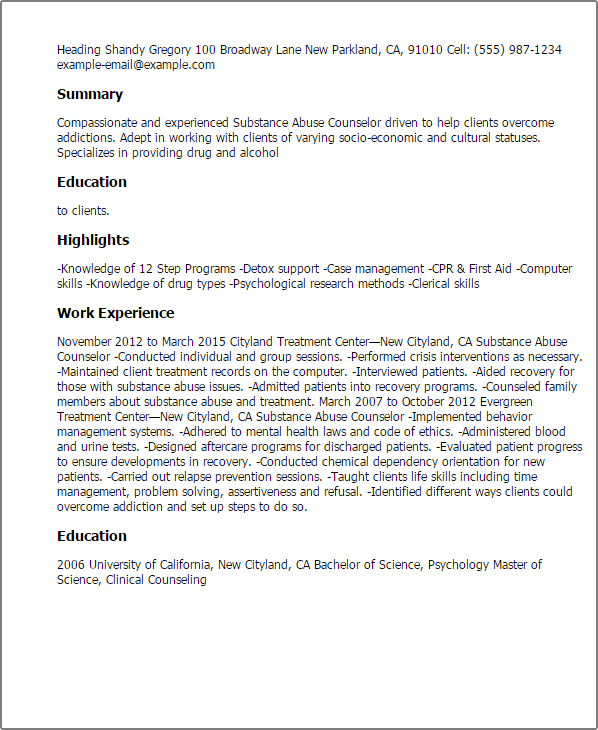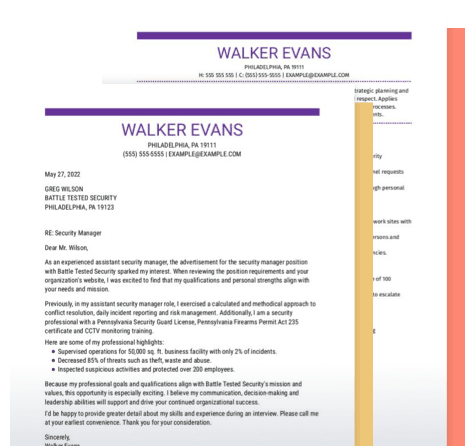Drug Alcohol Counselor Resume Examples & Templates

- 30% higher chance of getting a job‡
- 42% higher response rate from recruiters‡
Drug and alcohol counselors have the overwhelming responsibility of helping others master the perils of addiction. But, when entering the job market, counselors need to put themselves first, finding the time to create a winning resume. Resumes provide an opportunity to draw attention to your particular skill set, work experience, and career highlights. Get it right, and hiring managers will scramble to get you in the door for an interview. The greatest challenge you’ll face in the application process is making yourself stand out. As a counselor, make sure you add specifics to the highlights section. If you have experience in group counseling, describe the sizes of the groups, the types of therapy you’re familiar with–or how you’ve used patient databases. To be sure that your resume is on its way to greatness, check out our awesome drug and alcohol counselor resume samples.
Drug and Alcohol Counselor Resume Questions
1. How do you write an objective statement for a drug and alcohol counselor resume?
2. How do you list certifications on your drug and alcohol counselor resume?
3. What format should your drug and alcohol counselor resume be in?
4. How do you optimize your drug and alcohol counselor resume for an ATS?
5. How do you list schools in a drug and alcohol counselor resume?
6. How many bullet points do you include with each job on a substance abuse counselor resume?
7. How do you write the experience section of your substance abuse counselor resume?
8. How do you highlight soft skills on a substance abuse counselor resume?
Even the most perfect resume can benefit from the context a winning cover letter can add. So find out how to your own great Drug and Alcohol Counselor cover letter today by using our examples and writing advice as a reference. Show Resume Text
Resume Text
Carlos Neels
123 Fake Street
City State, Zip Code
Cell: 000-000-0000
email@email.com
Summary
Untiring Drug and Alcohol Counselor compassionately treating patients with a wide range of drug and alcohol abuse problems in a supervised environment. Updated on advances in addiction diagnosis and treatment. Astute observer of human behavior with well-developed listening, comprehension and communication skills.
Highlights
- Sound understanding of drug and alcohol abuse disorders
- Considerable experience conducting one • on • one and group sessions
- Proficient in database management to enter and access patient information
- Knowledge of traditional and alternative substance abuse treatments
- Sympathetic attitude towards others
- Ability to maintain trust of patients
Work Experience
February 2013 to Present Company Name — City, State Drug and Alcohol Counselor
- Perform initial treatment evaluations.
- Schedule required blood tests for program participants.
- Update and review patient records, including notes on individual and group sessions.
- Dispense medications in a supervised setting while confirming that patients take their medications as directed.
- Make plans for aftercare programs once patients are discharged from the center’s inpatient treatment program.
- Coordinate with other members of the treatment staff to evaluate patient progress and make recommendations for treatment plans. October 2008 to February 2013 Company Name — City, State Drug and Alcohol Counselor
- Conducted initial patient interviews.
- Held individual and group counseling sessions.
- Invited family members to be a part of some of the therapy sessions in an attempt to show patients how their addictions were affecting their loved ones.
- Recommended patients for transference to inpatient treatment programs when outpatient treatments failed to be effectual.
- Closely monitored patient progress and made necessary changes treatments and therapies.
- Responded to questions from patients and family members.
Education
2008 University of California, City, State Master of Science, Psychology 2005 University of California, City, State Bachelor of Science, Behavioral Sciences
More resume examples for the next step in your social services career
- Behavior Technician Resume
- Behavioral Therapist Resume
- Case Manager Resume
- Case Worker Resume
- Child Protection Social Worker Resume
- Community Development Worker Resume
- Community Health Worker Resume
- Community Manager Resume
- Community Outreach Specialist Resume
- Community Service Coordinator Resume
- Counsellor Resume
- Disability Support Worker Resume
- Domestic Violence Counselor Resume
- Human Service Worker Resume
- Humanitarian Aid Worker Resume
- Job Coach Resume
- Life Coach Resume
- Juvenile Probation Officer Resume
- Rehab Aide Resume
- Social Worker Resume
- Volunteer Resume
- Medical Social Worker Resume
- Youth Worker Resume



